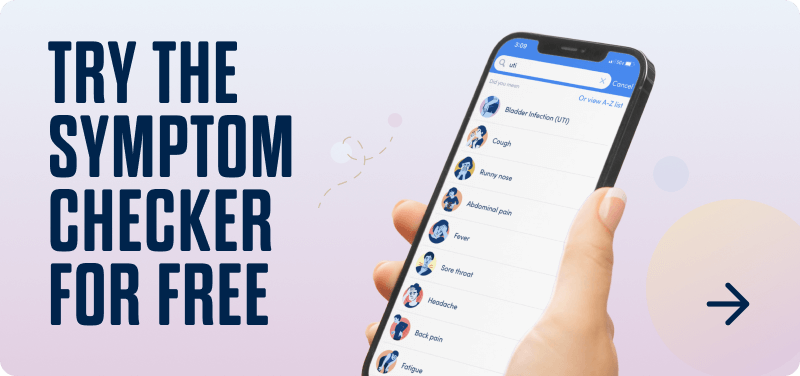Type 2 diabetes (T2D) is a condition that can cause high levels of sugar in the blood. If you have T2D, your provider will likely prescribe you medication and recommend certain lifestyle changes in order to manage it. But is it reversible?
New evidence suggests that in some cases, you may be able to reverse T2D. Despite this, reversal is not considered to be a goal in current diabetes guidelines—instead, the focus is on management. One study found that the diabetes remission rate is just 0.23%.
In this article, I’ll talk about the possible ways you can reverse T2D, including weight loss, dietary changes, and bariatric surgery. I’ll also discuss managing T2D and living a healthy lifestyle.
Can Type 2 Diabetes Be Reversed?
Past approaches to T2D have considered the condition incurable, but a 2019 clinical trial in the United Kingdom aimed to prove otherwise.
Called the Diabetes Remission Clinical Trial (DiRECT), the researchers proposed that T2D was caused by fat in the liver that results in increased blood sugar. They said that this caused fat to spill into the pancreas, which is responsible for insulin regulation. This caused issues in the pancreas that caused T2D.
The researchers used a low-calorie liquid diet as well as a long-term weight maintenance protocol to help the participants lose weight. Nearly 9 out of 10 of those who lost 15 kilograms (x pounds) or more were able to reverse their T2D.
About one-third of those stayed in remission after two years. This means they didn’t need diabetes medication to manage their condition.
While this research is promising, it does show that while remission is possible, it does not happen for everyone. However, it is promising, especially for people who hope to stop taking diabetes medication and live their lives without T2D.
It’s also important to note that even if you go into remission, your T2D can come back. You need to make sure your blood sugar levels and body weight stay in a healthy range. If your T2D comes back, you’ll need to start taking medication again.
Talk to a doctor from home
Manage diabetes medications without leaving your house.
Remission and Type 2 Diabetes
There is evidence that you can send your T2D into remission with low-calorie diets, carbohydrate restriction, and bariatric surgery. As you’ve probably noticed, the primary aim of these is weight loss.
Following a severely calorie-restrictive or low-carb diet long-term isn’t safe or possible for most people, so focusing on weight maintenance is very important.
Weight loss
According to research, people with T2D who lose weight have decreased insulin resistance and plasma glucose and can also lessen the amount of medication they take.
Before the DiRECT study mentioned earlier, most studies only looked at the short-term effects of weight loss. This means they don’t tell us how they affect diabetes long-term.
Many of them also prescribed incredibly restrictive low-calorie diets. A 2011 study gave participants 600 Kcal (calories) per day, and while this normalized their glucose and insulin sensitivity levels, most of the participants regained the weight they lost. In fact, there was an average weight regain of 20% 12 weeks after the study finished.
The DiRECT trial compared standard diabetes care with a liquid diet of around 850 calories per day. After following this for 3-5 months, researchers re-introduced foods and gave each participant a long-term weight maintenance protocol.
One year later, 46% of the participants were in remission from their T2D. After two years, that number dropped slightly to 36%.
We know that weight loss is a key part of managing the condition and even sending it into remission, but it is important to do it gradually and safely. If you are considering starting a weight loss plan, it’s a good idea to talk to your provider first.
Bariatric Surgery
Some people can’t lose weight with diet and exercise alone, and for those individuals, bariatric surgery may be an option. It can also be useful because it helps you lose weight quickly while springboarding a weight loss journey when paired with a healthy lifestyle.
In 2016, the Diabetes Surgery Summit recommended bariatric surgery be used as a T2D treatment where appropriate.
If your provider thinks you are a good candidate for bariatric surgery, they will likely recommend one of two options: gastric sleeve and gastric bypass. In gastric sleeve surgery, a surgeon removes a large portion of the stomach and sews the remainder into a small sleeve. During gastric bypass, the surgeon creates a small stomach pouch and connects it to the small intestine, bypassing the rest of the stomach.
In the short term, bariatric surgery improves blood glucose and reverses T2D in 80% of people.
There isn’t much research on the long-term effects of this surgery on T2D, but whether or not a person stays in remission likely depends on whether they are able to maintain a healthy weight and diet. It is also important to note that this surgery carries significant risks and may not be a safe option for everyone.
Dietary Adjustments
As discussed previously, a low-calorie diet that helps a person lose weight can play a major role in reversing diabetes. However, some research has shown that low-carb diets may be particularly effective.
According to several studies, a low-carb diet has been associated with better blood sugar control and a reduction in the amount of medication needed.
At the moment, there aren’t any larger studies showing the long-term effects of a low-carb diet for T2D. Eat a low-carb diet if it works for you, but there’s currently no compelling evidence that eating low-carb is any better than eating a low-calorie diet.
Regular Movement and Activity
Regular exercise has so many benefits, and while it hasn’t been shown to reverse diabetes, it can play an important role in managing the condition. When combined with weight loss, it may help you send T2D into remission.
When you exercise with T2D, your body increases its use of glycolipids (a combination of carbohydrate and fat molecules) and improves insulin sensitivity. Some research has also shown that it can improve blood pressure, glucose metabolism, and fat metabolism.
Combining exercise with a moderate calorie deficit can help you lose weight, which, as we discussed earlier, is a key player in T2D remission.
When it comes to the type of exercise, some research indicates that a combination of aerobic and resistance training may be more effective than cardio or resistance training alone. However, there isn’t much research here, so the key takeaway is to choose a form of exercise that you enjoy and will want to do regularly.
Medication
At present, there are no medications that can reverse T2D.
Usually, your provider will prescribe one or more medications to manage your T2D. They’ll also recommend lifestyle changes—like regular exercise and a healthy diet—that can help.
Some commonly prescribed medications for T2D include:
- Metformin: This is typically the first-line medication a provider will prescribe. It works by lowering the amount of glucose in your body.
- Sulfonylureas: These help the body make more insulin and are also commonly prescribed. In some people, they can cause hypoglycemia, weight gain, and allergic reactions.
- Glinides: These also increase insulin production, and like sulfonylureas, they can also cause hypoglycemia and weight gain.
- Gliptins (dipeptidyl peptidase-4 inhibitors): These increase insulin production, but they can cause headaches and tummy problems. Some examples include linagliptin, vildagliptin, and saxagliptin.
- Gliflozins (SGLT2 inhibitors): These help the body eliminate sugar in your urine. Some examples include dapagliflozin, canagliflozin, and empagliflozin.
- Glitazones: These help the body make more insulin, but they may slightly increase your risk of bladder cancer. The only glitazone still used is pioglitazone.
Managing Type 2 Diabetes
If you’re diagnosed with diabetes, your provider will likely recommend a combination of medication and lifestyle changes. They may prescribe one or more of the previously discussed medications, and they might also encourage you to try healthy lifestyle changes, such as:
- Aiming to eat in a moderate calorie deficit
- Eating a nutritious, balanced diet rich in fruits, vegetables, whole grains, and lean proteins while limiting sugary foods, processed foods, and saturated fat.
- Getting regular exercise or movement. The CDC recommends 30 minutes per day, five days per week.
- If applicable, stop smoking.
Talk to a doctor from home
Manage diabetes medications without leaving your house.
How K Health Can Help
Did you know you can have a primary care doctor online?
Check your symptoms, explore conditions and treatments, and if needed, text with a healthcare provider in minutes through K Health. K Health’s AI-powered app is based on 20 years of clinical data.
Frequently Asked Questions
K Health has strict sourcing guidelines and relies on peer-reviewed studies, academic research institutions, and medical associations. We avoid using tertiary references.
-
Hepatic Lipoprotein Export and Remission of Human Type 2 Diabetes after Weight Loss. (2020).
https://www.cell.com/cell-metabolism/fulltext/S1550-4131(19)30662-X#sec4 -
How much physical activity do adults need? (2022).
https://www.cdc.gov/physicalactivity/basics/adults/index.htm -
Incidence of Remission in Adults With Type 2 Diabetes: The Diabetes & Aging Study. (2014).
https://www.ncbi.nlm.nih.gov/pmc/articles/PMC4237974/ -
Insulin, Medicines, & Other Diabetes Treatments. (2022).
https://www.niddk.nih.gov/health-information/diabetes/overview/insulin-medicines-treatments -
Medication for type 2 diabetes. (2020).
https://www.ncbi.nlm.nih.gov/books/NBK279506/ -
Physical Exercise as Therapy for Type 2 Diabetes Mellitus: From Mechanism to Orientation. (2019).
https://www.karger.com/Article/Fulltext/500110 -
Reversal of type 2 diabetes: normalisation of beta cell function in association with decreased pancreas and liver triacylglycerol. (2011).
https://www.ncbi.nlm.nih.gov/pmc/articles/PMC3168743/ -
Reversing Type 2 Diabetes: A Narrative Review of the Evidence. (2019).
https://www.ncbi.nlm.nih.gov/pmc/articles/PMC6520897/ -
Systematic review and meta-analysis of dietary carbohydrate restriction in patients with type 2 diabetes. (2017).
https://www.ncbi.nlm.nih.gov/pmc/articles/PMC5337734/

 Medically reviewed
Medically reviewed
